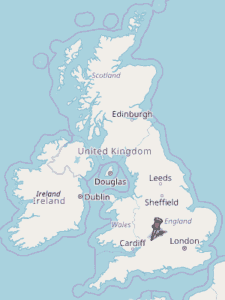Half of all primary schools in Gloucestershire have no male teachers.
New analysis of school workforce figures has revealed that 52 primary schools in Gloucestershire have an all-female teaching staff.
Excluding schools where the gender split of teachers is not available, that works out as 50 per cent of all primaries in our area.
Experts say that the lack of male representation in the classroom is due to the perceived low status of primary school roles, and the lower pay that can go hand in hand with this.
They argue that having more male teachers gives children male role models and helps them achieve their full potential.
Kevin Courtney, joint general secretary of the NEU (National Education Union), said: “Schools are essential services in the community, and they should reflect that community.
“Not everyone has what it takes to be a great primary teacher, but whether you can do it isn’t to do with whether you’re male or female.
“Unfortunately many men feel discouraged from entering teaching due to old-fashioned perceptions about jobs involving children.”
In total, there are only 1,567 male primary school teachers in Gloucestershire, compared to 4,281 female teachers.
Gloucestershire County Council, who maintain primary schools across the county, were approached for comment but did not respond.
Of the primary schools that provided data, only one in Gloucestershire has at least as many male teaching staff as women – Bisley Blue Coat Church of England Primary School, where 69 per cent of staff are male.
James Bowen, director of policy for school leaders’ union NAHT, said: “It’s important for all children to experience positive male role models, and to understand that men can be interested in education, science or reading, just as much as in football.
“A diverse Early Years workforce can help children, especially those from deprived backgrounds, to visualise their futures and fulfil their educational potential.
“The lack of male teachers in early years is partly due to the perceived lack of status and importance this phase of education can have, and the subsequent lower pay early years roles can attract.
“This fails to recognise that Early Years education is one of the most vital moments in a child’s education, and the point at which attainment and life chances can be set.
“It is critical that Early Years specialist teachers and middle and senior leaders are valued and recognised by governing boards and senior leaders.
“We call on the DfE to recognise the importance of Early Years’ representation on school senior leadership teams and governing boards, as well as bringing a stronger focus on Early Years pedagogy to initial teacher training in order to protect, strengthen and improve the quality of Early Years provision in schools.”
Nationally, 3,184 primaries in England have no male teachers at all – 36 per cent of all schools that provided data on the gender of their staff.
There are 129,493 male primary school teachers across the country, compared to 370,479 female teachers.

